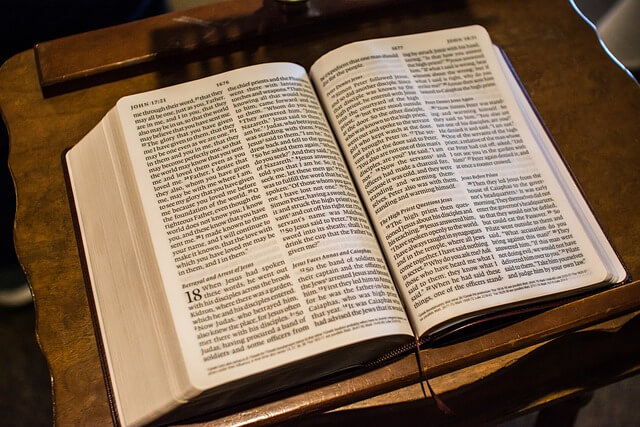“To the one he gave five talents, to another, two, to another one, to each according to his
ability.” (Matthew 25:15)
If you are like me, you’ve probably heard a dozen sermons on the Parable of the Talents. You’ve
heard preachers tell you about your time, your treasure, and your talents. You’ve considered
how you are being wise with what the Lord has given you. You’ve longed to hear the Lord say,
“Well done, good and faithful servant.” I mean, that’s why we homeschool, right? We clearly
see these precious lives in our hands and do our very best to be good servants to the Master
with these dear children He’s given to us. We give our time each and every day. Or consider the
careers that the primary homeschool parent are not pursing in order to be home with the kids.
That seems like some serious talent (and in some cases educational debt) that we are investing
into our kids at home. Additionally, many of us are single-income families, so of course we are
prudent with our money. We catch every curriculum sale and make kids use scratch paper in
order to re-use a workbook. Good steward of time? Check. Good steward of treasure? Check.
Good steward of talent? Check.
While all of that is true, today, I’d like us to consider something else in your hands: your kids.
What does this parable of Jesus mean to our children, especially those who have limited
income, whose talent is still being developed, and whose time is primarily dictated by their
parents? How do Jesus’ words apply to them? We want to encourage the ideals of stewardship
in our children, so here are four lessons we can teach our children from Jesus’ parable:
1. Everything we have was given to us by the Lord.
This seems pretty obvious for any Christian family to emphasize, but this is truly the foundation
of a life of stewardship. Nothing we have is truly ours: not our money, or our house, or our
children, or our food. In our children’s lives, too: not their favorite stuffed animal, or their new
Lego set, or the game console, or even their bed. It has all come from God and should be
treated like it is His. We do not have the right to be selfish or demanding because it’s not ours to
begin with. Stewardship means allowing the Lord to decide how each part of our lives is used
and learning to be okay even if it’s not the way we think it ought to be used.
2. Idleness with what He has given is not an option of which God approves.
The servant in the parable who simply didn’t lose his gift was not rewarded but scolded. In spite
of knowing the truth about his Master’s gift, this servant chose to do nothing with that gift.
Here it gets a little more personal: that brand new appliance we wanted last year and only used
once; the big, expensive Lego set the kids wanted but was taken apart nearly as soon as it was
assembled; The book that was read once and sits on the shelf collecting dust. The treasures that
God has given to us are not just for display. We ought to use whatever the Lord has given us. If
we aren’t going to use it, we could seek to bless someone else with it or seek a return for us in
its sale. Stewardship means using what you have been given in a way that is active and ongoing
to please the Lord.
3. Not everyone has the same stuff and that’s okay.
Some of us are naturally more organized; some of us are not. Some children are naturally more
responsible; some of them are not. In my house, this is easiest to spot based on who has the
pencils. I’m told by many homeschooling families and schoolteachers alike that pencils are
always in short supply. But there always seems to be one child that has a stash. The responsible
one who hoards them is also quite the businesswoman who barters for her needed goods. She
also happens to be the child who has a few more toys in her room and clothes in her drawer.
Her counterpart is a little more scattered and is always on the receiving end of such pencil
exchanges. I am coming to see that not everyone is capable of handling the same amount of
stuff. I’m sure it was easy for the servant who received two talents to complain that he had not
received five. But the master knew that he couldn’t handle five. Stewardship may look different
for different people because different people can handle different things. That is not a sign of
failure or a lack; it is simply a God-given difference.
4. God expects us to use what we have to love Him more.
The little boy whose lunch fed five thousand men in John 6 had no idea that his lunch would be
used for a miracle. He only knew that Jesus was hungry, and he wanted to share with Jesus.
That young man is an example of loving Jesus with what is in our hands. That is often much
easier for adults, as our hands can hold many more things. We can make dinners for people,
give money to missions, even just listen to a friend in need. But children are much more
tethered and may be unable to see how they can give to God when all they have are some toys
and (if they’re lucky) a pencil. This is where it is our job as parents to let loose their own
creativity. Snap a picture of their Lego creation and send it to a lonely shut it. Encourage art
projects and notes to a pastor or Sunday School teacher. Help stuffed animals and Barbie dolls
recite Scripture verses. Stewardship means modeling with my own possessions as well as theirs
how to practically love God with our belongings.
Being a good steward of what the Lord has given is an area that all of us can grow in. We can
learn to trust God more and love our stuff less. We can give with more sacrifice and keep with
more wisdom. We can help others while helping ourselves. As we consider all that the new year
holds and the resolutions that may be awaiting us at the strike of midnight, let us consider how
we may spur one another on, starting with our own children, to demonstrate and teach good
stewardship of all that God has given us.



